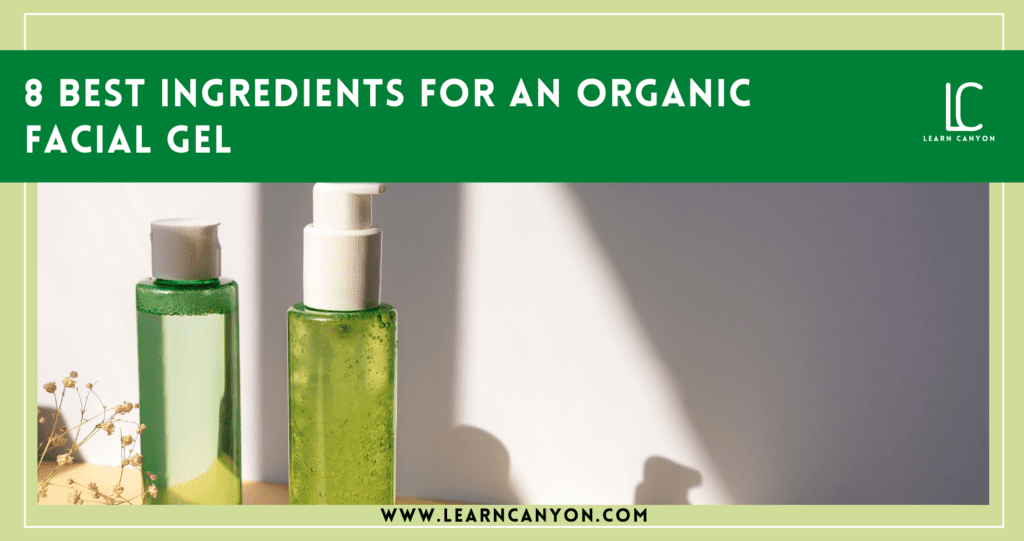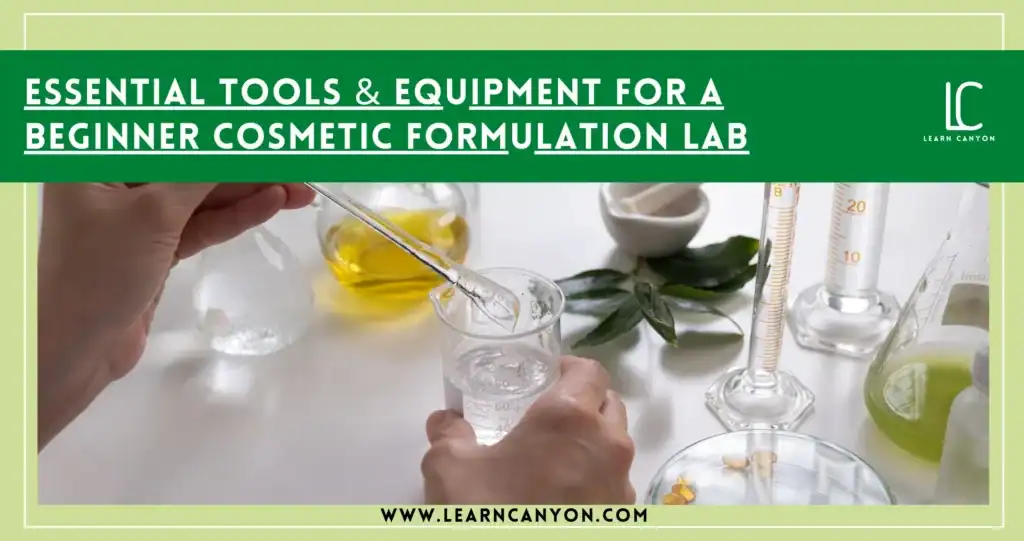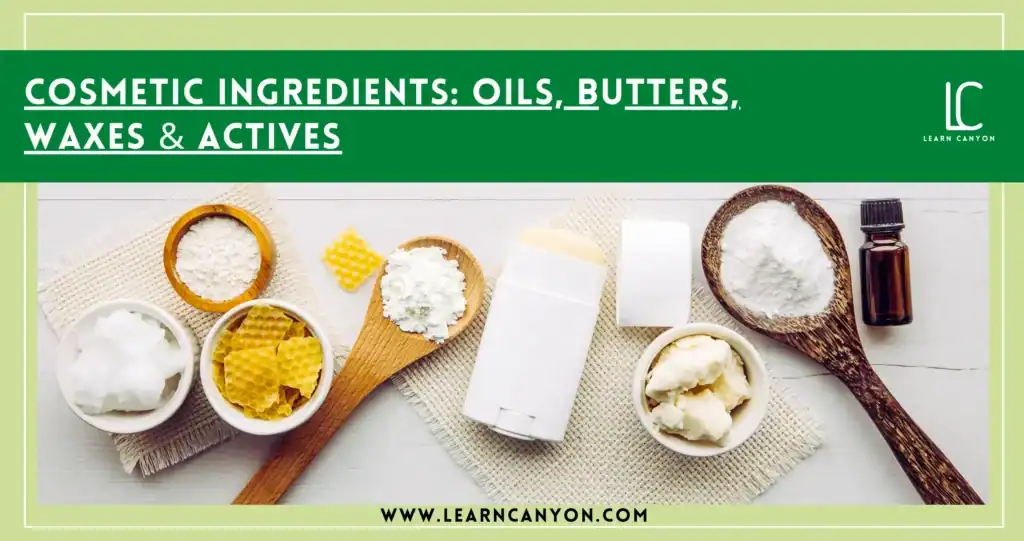When it comes to moisturisers, it’s essential to consider your skin type and select a product that will work best for you. Are you experiencing dryness?
A heavy, oil-based moisturiser is your best bet for locking in hydration. However, those rich moisturisers are unlikely to be as effective for oily skin prone to breakouts and normal skin that is neither too dry nor too oily. They may leave an unwanted layer of greasy residue behind.
Here’s everything you need to know about organic facial gel and what makes them so unique.
What Exactly is Organic Facial Gel and What Are Their Advantages?
Organic Facial Gel is water-based and usually free of oils, making it ideal for those with oily skin. These products absorb quickly while providing long-lasting moisturising benefits.
Traditional Organic Facial Gel forms a skin surface barrier that traps moisture. Gel moisturisers do the same thing, but most of them are also designed to release specific ingredients that attract water from deeper layers of skin and bring it to the skin’s surface.
Is Organic Facial Gel safe for your skin?
Organic Facial Gels are effective for most skin types, despite their ease of application and spreadability. They’re especially beneficial for people with acne-prone or oily skin because they don’t add oil as they are prepared oil-free fruity, natural herbal ingredients.
When should you use Organic Facial Gel?
Apply Organic Facial Gel to freshly cleansed skin and you’re ready to go. Remember to apply your skin twice a day to keep it moist, have a healthy barrier function, and look healthy.
Who Should Try Organic Facial Gel?
Despite their easygoing reputation, organic Facial Gels are effective for most skin types. They’re especially beneficial for people with acne-prone or oily skin because they don’t add oil to the skin’s already-oily surface.
Oily skin types may be tempted to skip the moisturising step entirely to reduce oil. However, this is not a good idea because dryness causes the body’s oil glands to overwork and clog your pores even more.
Try a gel moisturiser instead. “It’s a nice substitute for cream.”
“It’s hydrating, but it doesn’t have that greasy, heavy feel, and it also doesn’t clog your pores as much because it absorbs so quickly.” Gel moisturisers are also ideal for the summer months for the same reasons.
Read the Article: How To Make An Organic And Natural Face Cream
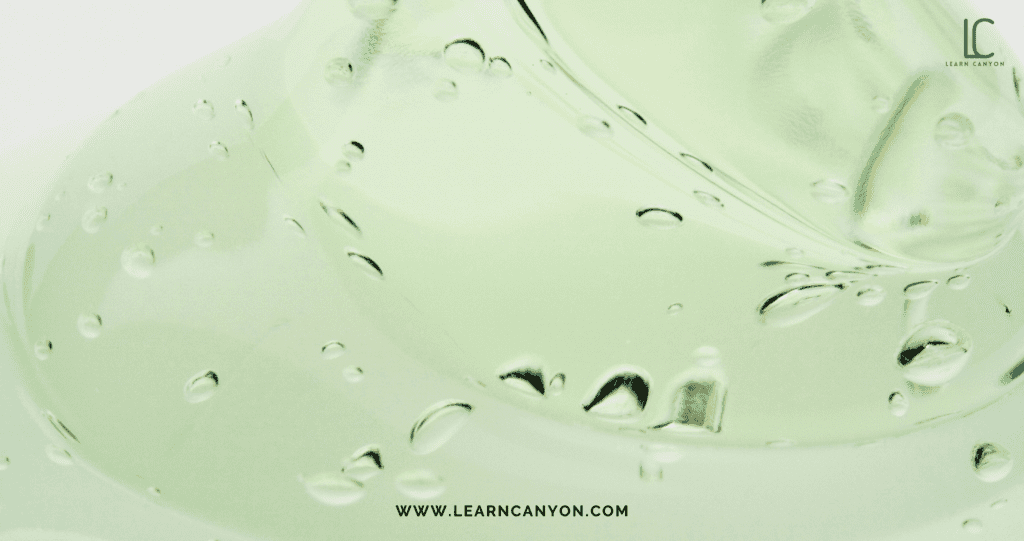
Here are some significant benefits of facial gel:
- Compared to a rich moisturiser, these gels can leave your skin feeling fresh and less weighed down. This makes them an excellent choice for those who dislike the feel of a thicker cream on their face.
- Quickly absorbed: These moisturisers absorb quickly into the skin, making them an excellent base. “Many women find it easier to apply makeup after a gel application rather than oil-based creams,”
- Non-greasy Because facial gel does not contain thicker oils as creams and ointments, they do not leave an icky greasy residue. “It applies very smoothly.”
- Leaves greater water content on the skin’s surface, as well as increased radiance, clarity, and texture.
Gelling or binding agents are hydrophilic (water-loving) colloids that disperse and swell in water and are required to keep the product’s integral stability and prevent separation into component phases.
They are most likely the most variable component of facial gels, and the gelling agent used can significantly impact the product’s physical properties.
There are a plethora of raw materials that have beneficial effects on the skin, but they also have side effects.
Today in this blog, we will discuss the Eight Best Ingredients for Preparing Organic Facial Gels that contain water-soluble active components that make them unique in the form of Organic Facial Gels and do not have any side effects.
1. Carrageenan:
Yes, carrageenan is a skincare ingredient that you may or may not have seen. Let’s look at carrageenan and what it does in skin care.
Carrageenan is the generic term for gelling agents derived from the harvesting and extracting Chrondrus crispus seaweed. It is a purified colloid composed of sulfated polysaccharides, and as with all-natural products, its quality can vary depending upon its geographical source.
Therefore, it is standardized through either repeated blending or dilution with varying amounts of inert material. Controlling the cations present via ion exchange can provide some flexibility in the gelling properties of carrageenan. However, despite being fairly common in the past, its use has declined due to its high-cost considerations.
Carrageenan’s Function in Cosmetics and Skin Care
Carrageenan, a plant-based gelatin-like substance, is also used as an effective emulsifier in skin care products to create a smooth, creamy texture. Its water-binding ability keeps skin hydrated, keeping moisture where it belongs – on your skin.
Carrageenan benefits more than just nourishment, as you can see. It’s also praised for its thickener, emulsifier, and moisturiser abilities. It is beneficial in creating a facial gel that is easy and pleasant to apply to your skin because it gives a product a smooth and luxurious texture.
It acts as an emulsifier, preventing the separation of ingredients. While carrageenan is an excellent emulsifier and thickener, it is also an excellent moisturiser, aiding in retaining your skin’s natural moisture. Furthermore, it is entirely plant-based, a desirable feature in today’s skincare market.
2. Honey
Honey is a syrupy liquid produced by honeybees from plant nectar. It is used in various cosmetic products because of its nourishing power. The smell, colour, and taste of honey differ depending on the type of flowers used to make it, so numerous varieties are available.
Organic honey is a more natural, healthier, and environmentally friendly honey. Organic honey contains no pesticides or bioengineered synthetic products.
This honey is extracted from beehives located in natural areas, and the owners must adhere to standards that include bee management, a proper extraction process, and a regulated processing temperature.
Organic honey contains no pesticide or other toxin residues found in factory-produced bottled honey readily available on the market. Organic honey is also subjected to stringent chemical testing to ensure that it contains no deposits.
Organic honey is produced by beehives free of added sugar and antibiotics. It nourishes your skin and your face.
Honey is beneficial to the skin because of its moisturising and nourishing properties. Honey is the best natural moisturiser, especially for dry skin, and it is also straightforward to use. Raw honey not only unclogs pores but also moisturises dry skin.
It also aids in the treatment of cracked lips during the winter. Honey masks are also popular for skin tone correction. It is also a natural antiseptic and can treat wounds, bruises, cuts, burns, and other infections.
Controls and prevents Eczema
Eczema is a skin condition that causes uncomfortable red, itchy, flaky skin. Eczema is most common in young children and teenagers and can be treated with eczema cream. To eliminate the problem, mix raw honey and cold-pressed olive oil and apply it to the skin.
Honey cleanses the skin naturally by removing dirt and leaving it smooth and soft. It can also be used to exfoliate the skin by combining it with oats to remove dead cells. Regular use of honey prevents the occurrence or recurrence of eczema.
3. Aloe Vera
Hundreds of beauty products contain aloe vera gel. It is a soothing treatment for skin conditions such as eczema and psoriasis and a cooling remedy for burns. Aloe is most effective when it is processed as little as possible. If you can’t find it fresh from the leaves, look for aloe juice products and pure gels.
The fresh gel is extracted from the leaves without the use of any additives. If you want to use gel made from thickened juice, ensure the first ingredient is aloe vera (Aloe barbadensis miller), not water or sugary filler.
Only two aloe plant species—Aloe barbadensis miller and Aloe arborescens—are grown commercially, with Aloe barbadensis Miller being the most common.
Aloe vera is known as the “burn plant” due to the remarkable ability of its gel and herbal water, when applied externally, to heal a wide range of burns, from sunburn to more serious scalds and burns. Aloe vera can soften the skin around minor wounds and prevent dryness.
Aloe vera gel and herbal water have anti-inflammatory properties that can help soothe sunburned skin. It also inhibits histamine formation, making it useful for allergic conditions such as contact dermatitis. It has also been shown to aid in the treatment of psoriasis.
Blemishes can be lightened by using the aloe vera gel.
Use aloe vera juice to tone your skin or to treat oily skin. Apply as you would a regular toner.
The antimicrobial properties of aloe ingredients aid in the killing of acne-causing bacteria.
When added to beauty products, the gel or juice keeps the skin hydrated and moisturised. . It can also help to fill in wrinkles and fine lines.
As an aftershave, men can use aloe vera gel. It soothes skin irritation and inflammation while also healing cuts and nicks. The gel softens and protects the skin and is increasingly used in facial cleansers and moisturisers.
4. Orange
Orange peels can be used in a variety of ways to achieve glowing skin. While many people discard orange peels after eating them, it is essential to know they have a high value. Orange peels are used to treat dry, flaky, and itchy skin. It also protects skin cells from oxidative stress, producing youthful, glowing skin.
We all enjoy the flavour of the bright and juicy fruit orange. Surprisingly, it is also one of the most effective immunity boosters. A daily glass of orange juice benefits your health because it contains vitamin C, folate, and potassium. Orange also has several beauty benefits in addition to its health benefits.
As a result, incorporating it into your GEL and beauty routine will benefit you.
Brightens Skin
The gel will give your face a healthy glow. It will also help to lighten the dark spots. If you have acne scars, dark spots, or pigmentation, orange gel’s high citric acid content will help you get rid of them.
Treat’s Acne
Orange gels are effective against pus-filled pimples and acne because of their cleansing, anti-inflammatory, antibacterial, and antifungal properties. They dry up the pimples, allowing them to heal more quickly.
This gel, which has been used as a skincare staple since ancient times, will exfoliate dead skin cells and leave you with a gleaming glow on your skin. Not to mention that the tangy orange aroma will recharge you!
Reverse the aging process
The orange gel contains calcium, which helps to renew and regenerate the skin. It is also known to regulate sebum production, thereby removing excess oil from the skin.
Its anti-inflammatory properties protect our skin from sun damage. Not only that, but they improve collagen production, making your skin firmer and more elastic. As a result, the effects of ageing are reversed.
Dead cells are exfoliated
The rind of an orange is thought to be beneficial to the skin because it treats blackheads and blemishes. It is an effective exfoliating agent that aids in the removal of blackheads and the unclogging of skin pores.
Dried orange peel beads act as natural exfoliators, gently removing dead cells and blackheads while leaving the skin glowing.
Skin clearing
The orange gel has powerful anti-inflammatory properties. They can suppress inflammation in the same way that indomethacin, an anti-inflammatory drug, can. Orange peel flavonoids are also known to permeate membranes and heal inflammation.
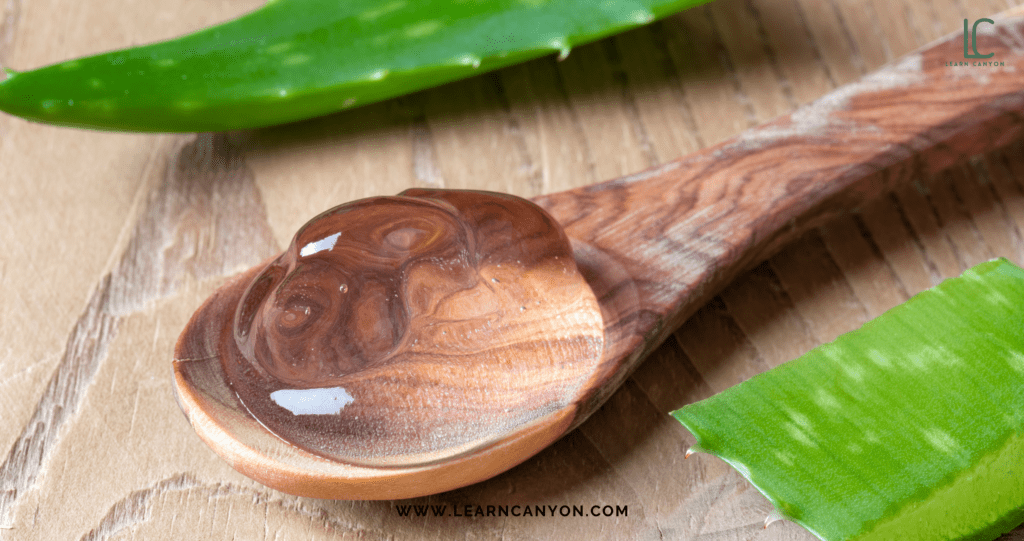
5. Hibiscus
Not only is the Hibiscus flower stunning to look at, but when used in personal care products, the fantastic Hibiscus benefits for your skin can be unlocked.The exotic, vibrant petals of the Hibiscus plant are fanning out in the shape of a trumpet.
It blooms in a variety of colours, including red, pale yellow, and pink, and has long been used as an ingredient in herbal gels and medicines, traditionally to treat hair loss and skin problems.
GEL FOR ANTI-AGING
Hibiscus, one of the most potent anti-aging plant actives, has a magical reputation for increasing skin elasticity and providing a stunning natural youth boost.
Hibiscus actively fights the aging process by firming and lifting your skin by inhibiting the activity of the enzyme elastase, which is responsible for breaking down our skin’s precious elastin.
GEL PURIFY YOUR COMPLEXION
Hibiscus’ natural acids help to purify your skin by breaking down dead skin and increasing cell turnover; they can also help to control acne breakouts.
As previously stated, Hibiscus contains gentle acids that have a mild exfoliating effect on the skin. This Hibiscus benefit can promote an overall fresher, younger, smoother-looking complexion, not just age spots.
Unlike harsh synthetic forms of these acids, which can strip your skin of its natural oils, Hibiscus organic acids restore balance to your skin for a naturally gorgeous, glowing complexion.
GEL WITH ANTIOXIDANTS
Hibiscus contains a lot of antioxidants called anthocyanocides. Antioxidants have been shown to help fight skin-damaging free radicals that form when pollutants like ultraviolet radiation and traffic pollution come into contact with the skin, resulting in premature skin ageing.
Anthocyanocides protect against free radical damage and are also slightly astringent, which helps to reduce the appearance of large pores for a smoother complexion. Hibiscus is also anti-inflammatory and can help soothe inflamed skin, making it suitable for susceptible skin.
EVEN OUT SKIN TONE
The appearance of hyperpigmentation or age spots is one of the visible signs of skin ageing.
Various factors, including ultraviolet radiation exposure, excess melanin production, and genetics can cause age spots.
Hibiscus gel helps to speed up cell turnover, resulting in a more even skin tone, thanks to the slightly exfoliating effect of the plant’s organic acids, which include citric acid and malic acid.
6. CUCUMBER
Cucumber slices have long been used in under-eye and facial treatments worldwide. Cucumber benefits are supported by science and dermatologists as a popular treatment for common skin problems. So, what makes this humble salad the most valuable ingredient in the beauty industry? Let’s learn more about the Cucumber skin benefits.
Cucumber, as a gel, works wonders for our skin’s health without harming the skin’s pH or moisture barrier. Here are some reasons why you should incorporate cucumber into your skincare routine.
- Keep pimples and acne away from your face
The skin’s sebaceous glands produce oily substances that clog skin follicles, eventually leading to acne and other skin problems. Cucumber gel for acne treatment helps to manage oily skin texture while also treating clogged pores, acne, and blemishes.
- Maintains skin health and tone
When used regularly, the green-coloured tube provides a natural youthful glow and aids in the maintenance of a healthy and toned body. Cucumber’s antioxidant content keeps your skin hydrated and supple for a longer period of time.
- Aids in the prevention of premature aging
Cucumber contains antioxidants that help reduce wrinkles. Folic acid and vitamin C are also present. While Folic Acid helps the skin fight environmental toxins, Vitamin C promotes the growth of newer cells. These ingredients make your skin appear healthier, younger, and firmer.
- A fantastic source of hydration
96% of cucumber is its water content. Because water isn’t enough to keep your skin hydrated, using cucumber gel may help it stay calm and hydrated. Its gel contains many essential nutrients that moisturise, cool, and protect skin cells from toxins. Its gel is anti-inflammatory, which helps to fight bacteria and inflammation on the skin.
- Reduces puffiness and dark under-eye circles
Due to its high water content, cucumber gel is an excellent ingredient for the under-eye area. Because this tube-based vegetable contains numerous nourishing and skin-healing properties, applying it under your eyes improves your appearance.
Cucumber gel constantly works helping to improve skin elasticity.
7. PAPAYA
Papaya is a year-round fruit that provides the body with all essential nutrients. Regularly eating papaya, which is high in vitamin A, can help treat vision problems. This pulpy fruit extract is also a key ingredient in various skin and hair care products. The high concentrations of essential vitamins A, C, and lycopene in papaya make your skin look radiant, toned, and youthful.
Skin Pigmentation Treatment
Papaya is a wonder ingredient that can remove scars and uneven pigmentation from the skin. The fruit’s skin lightening properties aid in the removal of blemishes and pigmentation. The papain enzyme in papaya acts as a powerful skin exfoliator, removing dead cells and making a face lighter tone and supple. Furthermore, the abundance of beta-carotene and plant compounds found in papaya improves the skin’s glow and complexion.
Anti-aging
The high concentration of carotenoids and antioxidants in papaya help to fight free radical damage and prevent the breakdown of collagen and elastin, which tightens the skin and reduces wrinkles. Even the papaya skin contains enzymes that can be used to remove dead cells and age spots from the skin.
Skin Disease Treatment
For centuries, papaya has been used as a natural remedy to treat scars, burns, and skin diseases. The enzyme papain exfoliates dead skin cells and soothes skin impurities. Apply mashed papaya pulp directly to the affected skin area to treat skin diseases such as eczema and psoriasis and reduce itching and redness.
Moisturizer for the Skin
Papaya is highly beneficial in treating dry skin and hydrating your skin. Papaya’s high concentration of antioxidants and enzymes aids in treating dry and flaky skin. Applying papaya pulp to your face softens and brightens your skin.
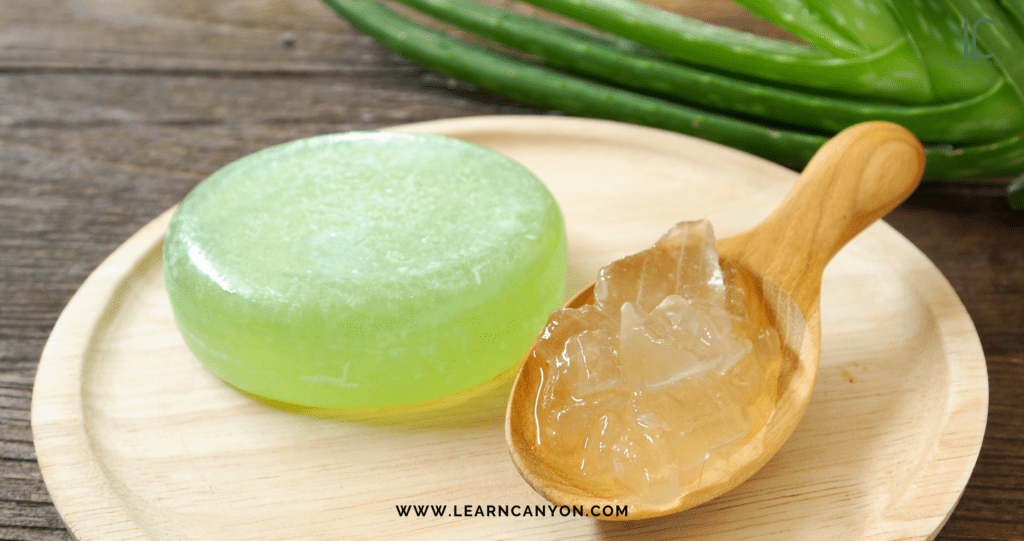
8. GRAPES
Grape varieties contain a high concentration of bioactive compounds, which may make grapes more than just a tasty fruit for juices and gels!
Grape juice is distinguished by its distinct colour, flavour, and aroma. It is a non-fermented gel that can be stored after treatment. Grape juice’s bioactive compounds and properties differ slightly from those of wine. Let’s read on to learn more about grape gel’s properties and potential applications.
Purifies and cleanses
The inclusion of nutrient-rich grapes in our formulation benefits our skin health in a variety of ways. It is an antioxidant powerhouse that flushes out toxins, purifies the skin microbiome, and cleanses our skin from within.
Grapes gel help protect our skin against the damages caused by ultraviolet rays (UV rays).
Acts on dull lifeless skin
Gape-containing face gel contains alpha hydroxy acids, which are great for dull and lifeless skin. Daily use of grape gel makes skin smooth, soft and glowing.
Moisturises skin
Internal hydration is enabled by grape gel, which activates skin hydration from within the skin, as opposed to oil-based moisturisers, which hydrate your skin by capturing moisture within the oily barrier.
Diminishes fine lines and wrinkles
It contains Ayurvedic extracts that stimulate and renew skin cells. Tones diminish fine lines by deeply hydrating the skin.A natural astringent that reduces blemishes and pigmentation.
DISCLAIMER
Your skin and body, like you, are one-of-a-kind. While we have taken every precaution to ensure that the information in this article and on our social media channels is credible and expert verified, we recommend that you consult a doctor or your dermatologist before attempting any home remedy, quick hack, or exercise regimen.




